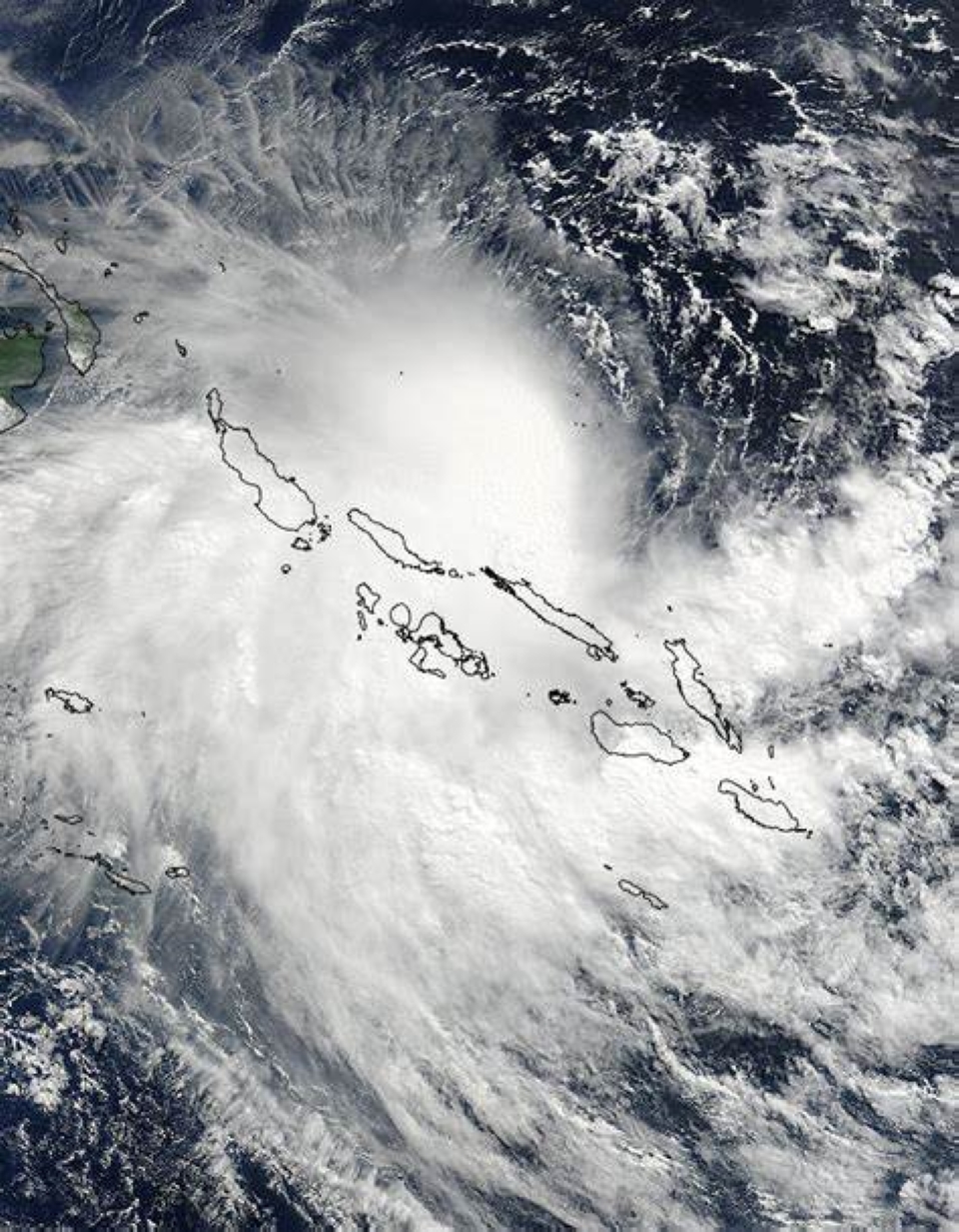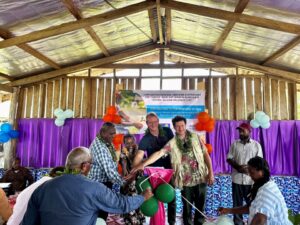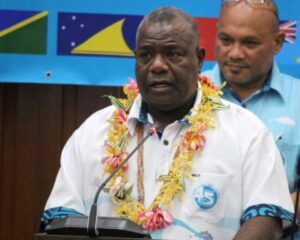BY JOHN HOUANIHAU
MELCHIOR Mataki, Permanent Secretary of the Ministry of Environment, Climate Change, and Disaster Management, emphasized the need for enhanced communication systems during the Solomon Islands’ cyclone season.
Permanent Secretary Mataki provided an update on the effects of the post-Tropical Cyclone Lola aftermath on Tikopia Island and other Temotu province islands at a press conference on November 2.
“Tropical Cyclone Lola developed as a low-pressure system northeast of the Duff Islands and strengthened to a category 2 to 3 on October 23, impacting Temotu Province and Tikopia Island.
“Tropical Cyclone Lola, causing significant wind force effects for Tikopia, entered Vanuatu waters as categories 4 and 5 on October 26,” he said.
The Solomon Islands typically experience a tropical cyclone season from November to April.
Mataki confirmed that SIBC coverage couldn’t reach far-flung islands during disaster events, stating it’s a communication issue rather than a lack of effective coverage.
Radio New Zealand reported that Ex-Tropical Cyclone Lola has destroyed or damaged 148 out of 198 houses on the remote island of Tikopia in Temotu province.
Tropical Cyclone Lola, also causing significant damage in Vanuatu, has become the earliest category 5 system in the Southern Hemisphere.
“In 2013, the Ministry collaborated with SIBC and Japan’s government to invest in shortwave radio transmitters at Henderson, east of Honiara, to effectively communicate and warn remote islands and provinces.
“The operation aimed to effectively deliver messages and warnings to isolated provinces and islands, despite not functioning as planned over the past decade,” he said.
He said the assistance is aimed at ensuring the capability for the warning to be communicated effectively.
“That is a problem for the entire country. It’s a problem, but not a minor one. For us, communication is a major problem. Because the telephone system can also have an impact, we cannot just rely on it. We require options and redundancy. For example, the two-way HF radio is also good,” Mataki stressed. “I believe we need it to have stronger coverage, or a few more than what we have now in the islands.”
He went on to say that, in the end, improved communication systems are necessary to maintain, particularly for our far-flung islands.
“The 2019 census report shows low SIBC broadcasting listenership, indicating the advantages of frequent tropical cyclone experiences for islanders, despite damages and livelihood impacts, and their understanding of the weather system.
Mataki emphasized the need to strengthen the country’s communication system to ensure effective decision-making during cyclones, despite the local knowledge and experiences of the affected communities.
Additionally, Mataki gave local journalists his word that he knew the Director of Meteorology had also communicated with Vanuatu and provided contacts to radio Vanuatu in order to broadcast warnings during disasters.
The Permanent Secretary emphasized the need for effective communication systems on remote islands, enabling quick access to information and quick overviews of ground-level impacts, even if fly-overs aren’t feasible.
“The cost of logistics and mobilizing ships from Honiara to Temotu province in their response to the outer Temotu Islands is 60–70%,” he said.




